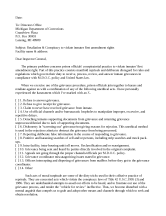
Shower Power in Colorado
On 14 May 2018, after seven days of being on lockdown and receiving one shower, 6 prisoners at the Colorado State Penitentiary (CSP) in the Management Control Unit covered their windows in protest and demanded they be given showers. The administration argued that they had been taken off lockdown on May 12, and therefore were not due showers.
On May 12, the facility had been taken off lockdown for 10 minutes and as soon as the doors opened multiple prisoners began fighting and the facility immediately went back on lockdown not ten minutes later leaving prisoners without a chance to take showers since May 10th. Colorado’s policy is that prisoners get a chance to shower every 72 hours.
At CSP each tier has 8 cells housing one prisoner each, 2 tiers per pod and 8 pods per unit. Six out of 8 prisoners all agreed to protest by covering their windows. Rather than allow the prisoners the human dignity of a shower, the cell extraction team was deployed, and a chemical weapon known as FOXISPRA Jet Oleoresin Capiscum (O/C) spray was applied. This caused several of the prisoners, including the author who has respiratory issues and is “O/C restricted” yet was still sprayed, to pass out. Apparently to Colorado DOC, being unconscious is considered resting. As usual staff tailored the reports to fit their needs, each prisoner was given disciplinary charges and monetary fines of $117, most of which was for one time use items that should have been split six different ways.
Sadly, the goal was not accomplished, however the 6 were allowed to shower to remove the O/C spray. The bright side is that solidarity such as this is on the rise in higher security prisons in Colorado, and this story has been circulating around the facility with high regard.
MIM(Prisons) responds: Building unity around common oppression is an important part of organizing behind bars. When people start to come together to demand their basic rights, they also start to see the power of this unity. Revolutionaries can build on this unity by helping folks to see how these individual situations of oppression are tied to the broader criminal injustice system. And making these connections we can start talking about what we need to do to fight back on a broader scale. Lots of people report their political awakening going back to persynal experiences of oppression, coupled with revolutionaries helping them see the ties to the broader system of oppression. United Struggle from Within comrades can play this leadership role by starting from where people are at and building with them.








